Other Mixes By lanhamyodel
CD
|
Mixed Genre
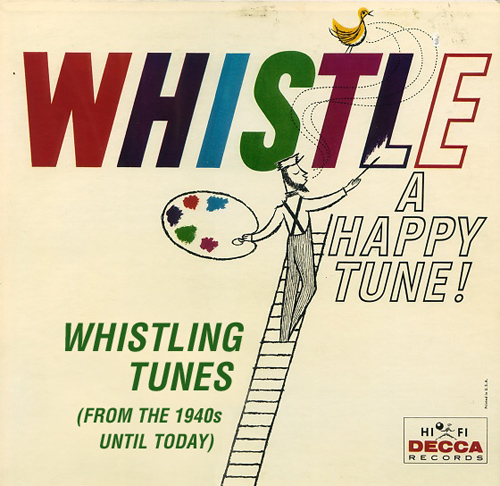

CD
|
Mixed Genre
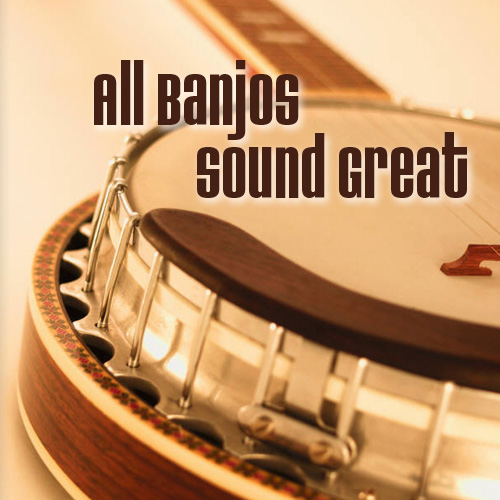

CD
|
Mixed Genre
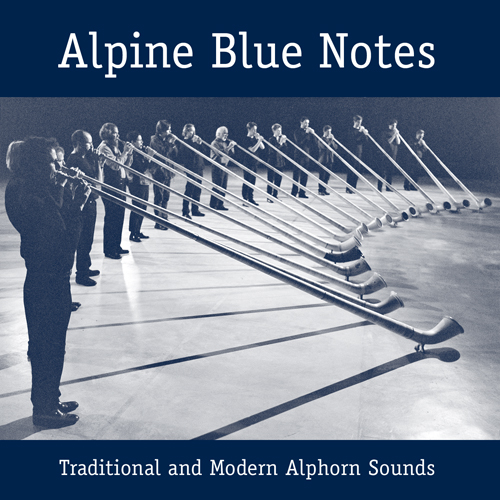

CD
|
Theme - Alternating DJ


CD
|
Singer/Songwriter
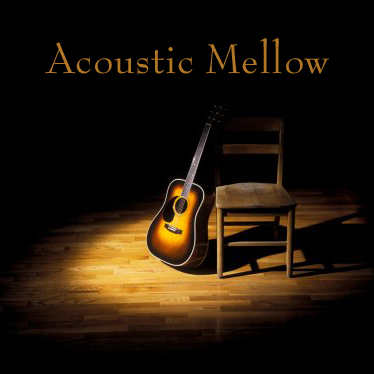

The Songs of Bill Monroe
| Artist | Song | |
| John Fogerty | Blue Moon of Kentucky | |
| Steve Wariner | Heavy Traffic Ahead | |
| Cherryholmes | Tallahassee | |
| Ricky Skaggs & Kentucky Thunder | Walls of Time | |
| Laurie Lewis, Kathy Kallick, Mike Marshall, Tony Trischka, Todd Phillips | True Life Blues | |
| Bruce Hornsby | Darlin' Corey | |
| Phillips, Grier & Flinner | Monroe's Hornpipe | |
| Dolly Parton | Mule Skinner Blues (Blue Yodel No. 8) | |
| The Osborne Brothers | Kentucky Waltz | |
| The Whites | Used to Be | |
| Sam Bush, Jerry Douglas | Big Mon | |
| Alan O'Bryant, Craig Smith, Stuart Duncan, Mike Compton, David Grier, Todd Phillips | Molly and Tenbrooks | |
| Dixie Chicks & Ricky Skaggs | Walk Softly | |
| Tony Rice, with Doyle Lawson, J. D. Crowe, Jerry Douglas, Bobby Hicks, Todd Phillips | Cheyenne | |
| Del McCoury Band | Get Down On Your Knees and Pray | |
| Tim O'Brien, Molly O'Brien, Ronnie McCoury, Richard Greene, Todd Phillips | Sittin' Alone in the Moonlight | |
| Jacob Jolliff & Ian Fleming | Old Dangerfield | |
| Peter Rowan, David Grisman, Herb Petersen, Vassar Clements, Todd Phillips | Travelin' This Lonesome Road | |
| Joan Osborne & Ricky Skaggs | On The Old Kentucky Shore | |
| Vassar Clements, Richard Greene, Chris Thile, Scott Nygaard, Todd Phillips | Scotland | |
| Dwight Yoakam, with Mark Fain, Ricky Skaggs, Stuart Duncan, Joey Miskulin | Rocky Road Blues | |
| Ricky Skaggs & Kentucky Thunder | Uncle Pen | |
| Ronnie McCoury, David Grier, Stuart Duncan, Craig Smith, Todd Phillips | Rawhide | |
| John Hartford, Ronnie McCoury, Mike Compton, Todd Phillips | Little Cabin Home On the Hill | |
Comment:
This is a tribute to Bill Monroe, "the Father of Bluegrass," who would have turned 95 on Sept 13, 2006. Monroe was born Sept. 13, 1911, in Rosine, Kentucky. He died Sept. 9, 1996, a few days short of his 85th birthday.Bill Monroe developed the style of country music known as bluegrass, which takes its name from his band, the "Blue Grass Boys." Monroe's performing career spanned 60 years as a singer, instrumentalist, composer and bandleader. As a mandolin player, Monroe brought a virtuosity previously unknown in country music to his instrument.
The songs and instrumental compositions on this mix were written or co-written (4, 13, 24) by Monroe, with a few exceptions (6 and 12 are adaptations of traditionals, 8 was first recorded by Jimmie Rodgers). Many are taken from two tribute albums; Big Mon: The Songs of Bill Monroe and True Life Blues: The Songs of Bill Monroe. The former was produced by Ricky Skaggs and features many stars from outside the bluegrass world (some of their recordings are not really bluegrass), while the latter features some of today's best bluegrass singers and pickers.
So what is bluegrass, you might ask. The following two paragraphs are from Wikipedia:
"Bluegrass music is considered a form of American roots music with its own roots in the English, Irish and Scottish traditional music. The name of the genre is derived from the Blue Grass Boys, the name of Bill Monroe's band. It is inspired by immigrants from the British Isles (particularly the Scots-Irish immigrants of Appalachia), as well as the music of rural African-Americans, jazz, and blues. Like jazz, bluegrass is played with each melody instrument switching off, playing improvised solos in turn while the others revert to backing; this is in contrast to old-time music, in which all instruments play the melody together or one instrument carried the lead throughout while the others provide accompaniment.
Unlike mainstream country music, bluegrass relies mostly on acoustic stringed instruments. The fiddle, banjo, acoustic guitar, mandolin, and upright bass are sometimes joined by the resonator guitar (popularly known as Dobro). Instrumental solos are improvised, and can frequently be technically demanding. At times the musicians may perform gospel songs, singing four-part harmony and including no or sparse instrumentation. Bluegrass bands have included instruments as diverse as accordion, harmonica, mouth harp, piano, drums, electric guitar, and electric versions of all other common bluegrass instruments, though these are not widely accepted within the bluegrass community."
And finally, from the liner notes to True Live Blues, a paragraph about Monroe's contribution to American music: "The songs and tunes Bill Monroe wrote are the basic vocabulary of bluegrass music. His songs can be corny and almost Victorian in their sentimentality, but they are more often compelling and honest and emotionally direct, curiously undiminished by the passage of the years. Monroe's music is timeless. He once told an interviewer that "bluegrass music brings out the old tones. The ancient tones." That's been Bill Monroe's greatest gift, taking the ancient tones of his childhood and bringing them to the modern world. In doing that, he linked a country with its past. He also created a future for its traditional music."
See comments section for additional track notes.
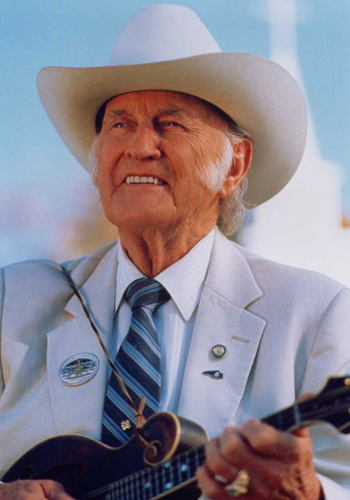
Feedback:
1) In 1954 Elvis Presley performed Monroe's "Blue Moon of Kentucky" at his one and only Grand Ole Opry appearance, radically reworking the arrangement; Presley apologized for his adaptation, but Monroe would later perform the same arrangement at his concerts.
8) Monroe debuted on the Grand Ole Opry in October of 1939, singing the "New Muleskinner Blues." The performance made Monroe's career as well as established the new genre of bluegrass. While Jimmie Rodgers had performed the song slow and with odd-tempoed guitar rhythms, Monroe sped it up, gave it a more regular rhythm, and added a unique mandolin intro. Dolly Parton's version reached number three in the charts in 1970.
9) Monroe's first charting hit, in 1946. It directly inspired a songwriter team to compose the "Tennessee Waltz," which became a huge crossover hit for Patti Page.
12) A song based on a historical race between two champion horses. In 1947 The Stanley Brothers, who revered Monroe and probably heard him perform the song on the Opry, recorded it in the Blue Grass Boys' style, even before Monroe recorded it himself. To them, imitation was the sincerest form of flattery, but to Monroe, it was theft. Yet the Stanley's version became one of the most important in bluegrass history, because it proved that Monroe's music had gone beyond being the sound of just one band and had now become a true, recognizable genre.
22) Ricky Skaggs, whose smooth vocals and fiery mandolin work can be heard all throughout this mix, started his career in bluegrass. At age seven he appeared on TV with Flatt & Scruggs; at 15 he was a member of the Stanley Brothers' bluegrass band. He moved on to a very successful career in mainstream country music, but returned to his roots at the end of the '90. "Uncle Pen" is one of Monroe's most famous songs, written for his uncle Pen Vandiver, a fiddler who taught the young Monroe to play and sing and let him play accompaniment at local dances.
This is the real Monroe Doctrine!
Inspiring to see what an inspiration Bill Monroe has been, truly creating a musical future out of the ancient tones.
Inspiring to see what an inspiration Bill Monroe has been, truly creating a musical future out of the ancient tones.
beautiful
Always gotta love Bill Monroe.
Fantastic porch sittin' music. Great mix.
Classic. Great notes too.
I'm so glad to see this here. I have so much respect & admiration for this man, and not only because I'm from Kentucky where he's worshipped by the hippest hipsters and their grandmas. It's his honesty and emotional directness that really grab me.
Got around to listening to this today in the nice weather. Really like that "Walls of Time" track... reminds me of the O Brother Where Art Thou soundtrack, which was the first album to show me that country/bluegrass could be enjoyable. This mix is a second demonstration of that fact!


